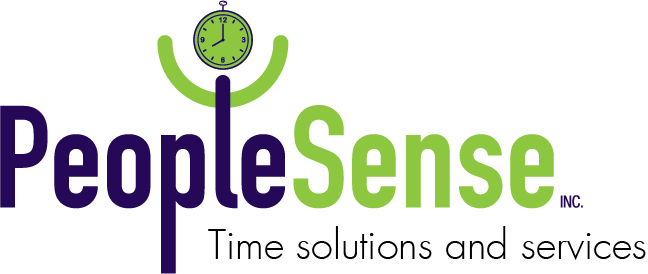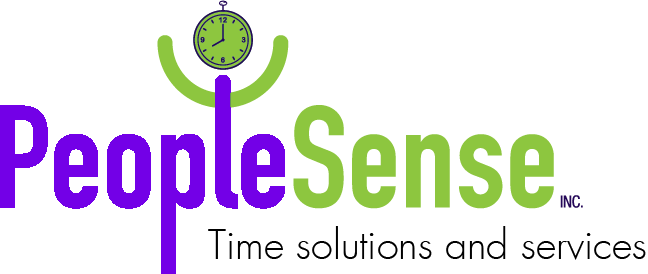Clair Pay on Demand Comes with Attendance on Demand. Get the Facts Here.
Pay on Demand is a novel way to allow your hourly workers to access their earned wages before payday, for free, with no risk to your business. This optional service comes free with your Attendance on Demand time and attendance system and it is a great way to keep your employees happier, at work and at home.
Is it right for your business? Get the facts. Access the Clair Pay on Demand info-sheet to learn how Pay on Demand works and how it impacts your business.
Curious to learn more? Later in this article, we dig deep to find out whether Pay on Demand is trustworthy. Find out reviews of Pay on Demand, how their compensation structure works, and their probable business motives. (Spoiler alert: we think it is a great option, as well as a smart business model.)
What Is Pay on Demand?
Pay on Demand, also known as Clair, is both an app and a neobank. It makes it easy for your employees to get an advance on their wages before payday, for free, at no risk to your business.
Quick definition: A “neobank” is simply a bank that is only online, with no physical banking locations. These are popular outside the U.S., but are only now starting to catch on here in the States. SoFi and Chime are well-known examples.
The Pay on Demand / Clair neobank is a pretty normal bank, with FDIC-insured deposits, and bank-grade security and encryption. Depositors’ money is held at Pathward, N.A., Member FDIC.
How Does It Work?
To get early access to their money, your employees would have to switch their direct deposit account to Clair, the Pay on Demand neobank. After that point, they would log in to the Clair app, request an advance from Clair, and they will get it, for free. They can withdraw their money as cash at an ATM or use their free Clair digital debit card to spend that money. There are no monthly fees, no loan payback rates, no gotcha hidden fees… nothing weird. Just money, in advance of payday, with no scary strings attached.
So, how can Pay on Demand do this?
Because Pay on Demand integrates securely and seamlessly into your Attendance on Demand time and attendance system, it can instantly confirm hours worked and wages for each of your employees who opt in. Since this verifies that the employee will, in fact, be receiving those wages within the next few weeks, Pay on Demand can safely advance that money to the employee and then collect it back when their paycheck is direct deposited in a few weeks.
Example: Your employee expects a paycheck of $1K. They request an advance of $400 from Pay on Demand. They get the $400 now, and when your business direct deposits their $1K paycheck in a few weeks, the employee will get $600 and Pay on Demand will get their $400 back.
If an employee quits before receiving the pay that Pay on Demand advanced them, Pay on Demand will bear that risk. Your business will have no risk.
To keep the accounting clean, Pay on Demand allows employees to advance a maximum of 30-60% of their paycheck (actual amount based on algorithmic reckoning). This way, they do not advance money that is earmarked for taxes or other paycheck deductions.
Best of all, your company will have precisely zero extra work to make this available. You will not advance money. You will not track advances. You will not have to approve time and attendance data for Pay on Demand. (Okay, you will have to enter in new direct deposit information when your employee provides you with it – but you would have had to do that anyway.) Pay on Demand / Clair is simply a bank, and you will process payroll as usual as a direct deposit to that bank for that employee.
Why Does It Work?
You may be thinking, “Well, this sounds great… but what’s in it for Pay on Demand?” We wondered too, so we looked up the details.
- How Pay on Demand makes money
In the highlighted example in the previous section, it was clear that Pay on Demand does not charge interest on their wage advances. Instead, they make their money from interchange fees that result from the debit transactions on the Clair debit card. They partner with MasterCard and, like other card companies and banks, receive a portion of the transaction interchange fee that is charged to the merchant. This is a typical model for a neobank.
- What’s the missing piece of the puzzle?
Because Pay on Demand makes money from debit card interchange fees, it is in their best interest to increase the number of Clair debit cards they issue. More transactions result in more fees, which result in bigger revenues for Pay on Demand.
Therefore, Pay on Demand promotes that employers use the optional service, and they pay per-user incentives to the time and attendance solutions they partner with, including Attendance on Demand. (Or they did in 2021, according to TechCrunch – we have not checked with Attendance on Demand to see if this is still the case).
- Do employees like Pay on Demand?
It would seem they do. The Clair app on Google Play has an average of 4.6/5 stars from 394 reviews. On Apple’s App Store, it has an average of 4.8/5 stars from 1,600 reviews. Employees are generally enthusiastic, with a few negative reviews centering around failed bank transfers to accounts outside of the Clair app.
Is Pay on Demand Right for Your Business?
Modern employees are demanding more benefits from their employers, and one of the biggest benefits that can help them is faster access to the money they have earned. Creditors have short (if any) grace periods on payments, yet paychecks can still take weeks to reach employees.
By providing faster access to wages, your company can boost employee morale, productivity, retention, and acquisition. By working with Pay on Demand as a part of Attendance on Demand, you can do this, for free, with no risk or liability for your company.
It seems like a clear choice to us… but we always recommend that you perform your due diligence.
Access the Clair Pay on Demand info-sheet to learn more.
Since 2003, PeopleSense has established itself as the definitive ERP and single source workforce management solution provider for businesses of all sizes throughout the U.S. and Canada, offering consulting for Made2Manage®, Intuitive ERP®, Axis Metals®, Sage HRMS, time and attendance solutions, Acumatica Cloud ERP, and related services and products. PeopleSense provides clients with the peace of mind that comes from working with experienced consultants dedicated to customer service, who are affordably priced with no annual contracts. Reach out to get your business software questions answered.



Recent Comments